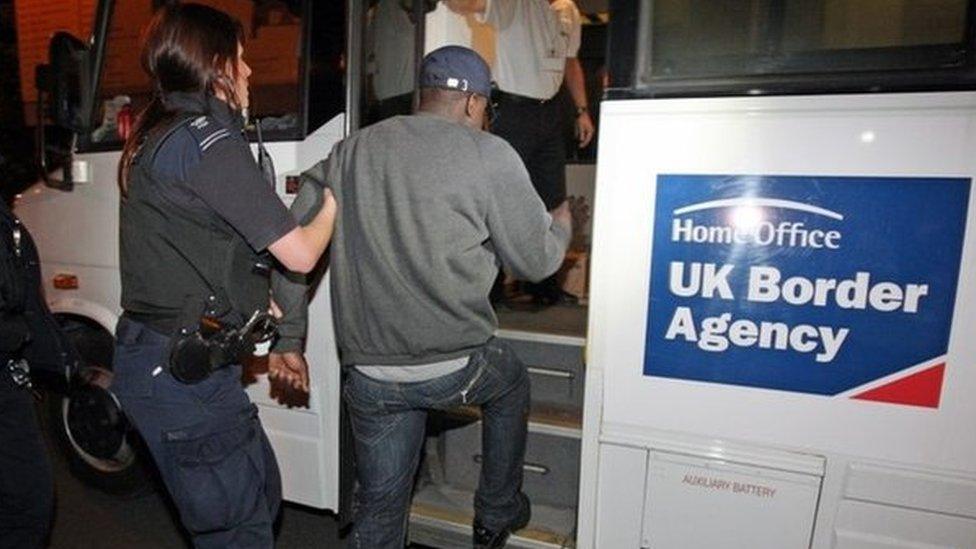Immigration focus is turning point in EU campaign, says Farage
- Published
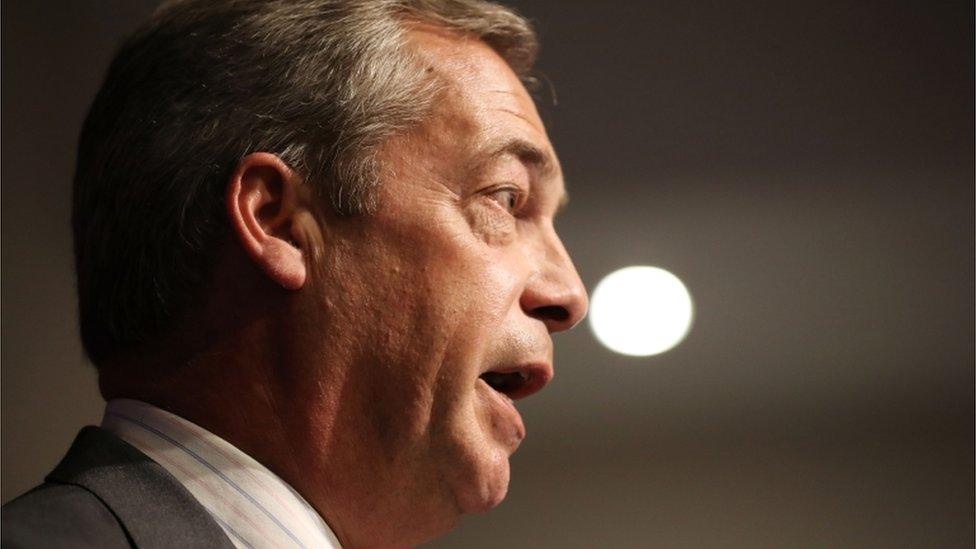
Mr Farage says people care more about their quality of life than GDP figures
Nigel Farage has said the EU debate is about "more than money" and the renewed focus on immigration is a "turning point" in the campaign to leave.
The UKIP leader said David Cameron used the single market as the "answer for everything" because he couldn't explain how to control immigration in the EU.
He said Mr Cameron's focus on trade was a "smokescreen" and people cared more about their quality of life.
The PM was quizzed on his vow to cut immigration in a TV debate on Thursday.
Polling cards have been wrongly sent to at least 3,462 EU citizens who are not allowed to vote in the EU referendum
JP Morgan - one of the world's biggest banks - warns it would shift UK jobs to Europe if Britain votes to leave the EU
The Home Affairs Committee says the failure to deport 13,000 foreign criminals will lead people to "question the point" of the UK remaining in the EU
Young people are being put off registering to vote because of the need to give a national insurance number, campaign group Bite the Ballot says
But Mr Farage said the prime minister responded to every question by referring back to the single market.
"It's the answer for everything," he said in a speech in London.
"This is about more than money. We should measure things in terms of quality of life," he said - referring to the difficulties people had accessing GPs and primary school places while public services were under pressure.
"We are being sold that this is all about trade and that the single market is soft and cuddly and lovely like a baby puppy. But actually it is a smokescreen for the real, simply proposition of this referendum.
"It's actually rather simple: do you wish us to be a self-governing, independent, democratic nation or part of a bigger, broader, European Union?"
'Dreams and aspirations'
And he said the decision by the official Leave campaign, of which he is not a member, to focus the debate on immigration, rather than economic arguments, marked a "turning point" in the campaign - three weeks ahead of the vote.
"People are beginning to understand that the prime minister cannot answer this fundamental question. When he says that we can maintain control of immigration while remaining a member of the European Union, people increasingly know this prime minister is simply not telling the truth."
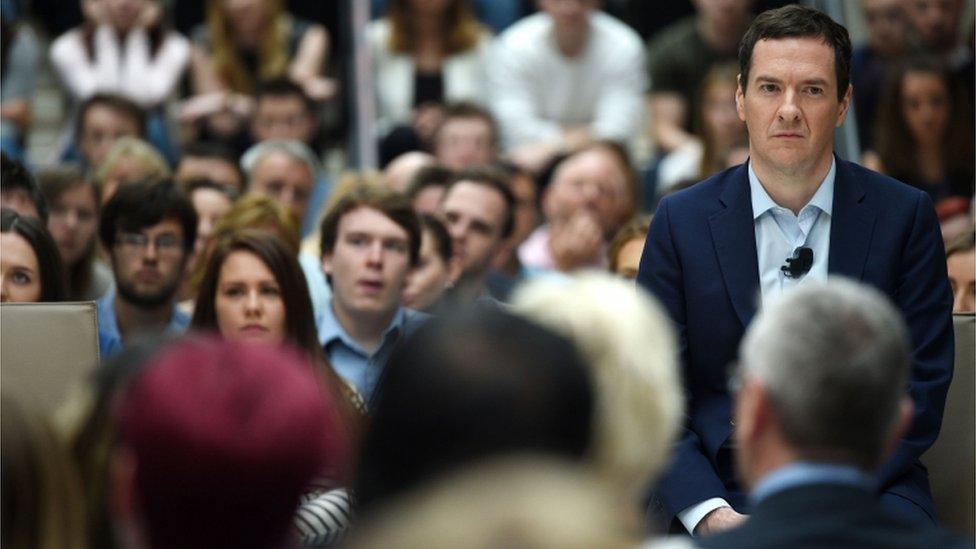
Mr Osborne said arguments about the economy were about people's livelihoods
In Thursday night's Sky debate, Mr Cameron was pressed on whether his manifesto pledge to reduce net migration to the "tens of thousands" was achievable while Britain remained a member of the EU.
He said he did not accept the argument that it wasn't and said it "would be madness" to try to do so by "trashing our economy and pulling out of the single market".
Chancellor George Osborne echoed his remarks at an event at JP Morgan bank's offices in Bournemouth earlier on Friday.
He said jobs would be lost if the UK voted for Brexit: "So let's end this deception that somehow if we quit the EU that jobs won't be at risk. It's deceiving people to pretend that we can leave the EU and jobs won't be at risk.
"In our analysis of the services sector alone, 400,000 jobs will be at risk.
"These aren't numbers on a trading screen or an accountant's graph, they are people's livelihood, their ability to support their families, their ability to live out their dreams and aspirations and that is what is on the ballot paper when we vote in this referendum."
Mr Farage was criticised by Labour Remain campaigner Chris Leslie, who said the UKIP leader had a "reckless and dangerous plan".
In a Q&A after his speech, the UKIP leader said that, should Germany and France choose to "cut off their noses" by not agreeing a trade deal with a post-Brexit UK "their biggest export market", the UK would still be better off than it currently is, under World Trade Organisation rules.
"The worst case scenario is better for this country than where we are now," he said.
But Mr Leslie, for Britain Stronger in Europe, said that would hit UK consumers and businesses with £11bn of tariffs. "That means more expensive trade and massive uncertainty damaging our economy. And that makes working people worse off. "
Labour's deputy leader Tom Watson urged voters not to be "misled" by the Leave campaign's claims about immigration because there would still be migration to Britain from outside the EU if Britain left.
He said: "Immigration is as much about domestic policy as it is about this referendum and we've seen cut after cut after cut in our border forces."
- Published3 June 2016

- Published3 June 2016

- Published3 June 2016
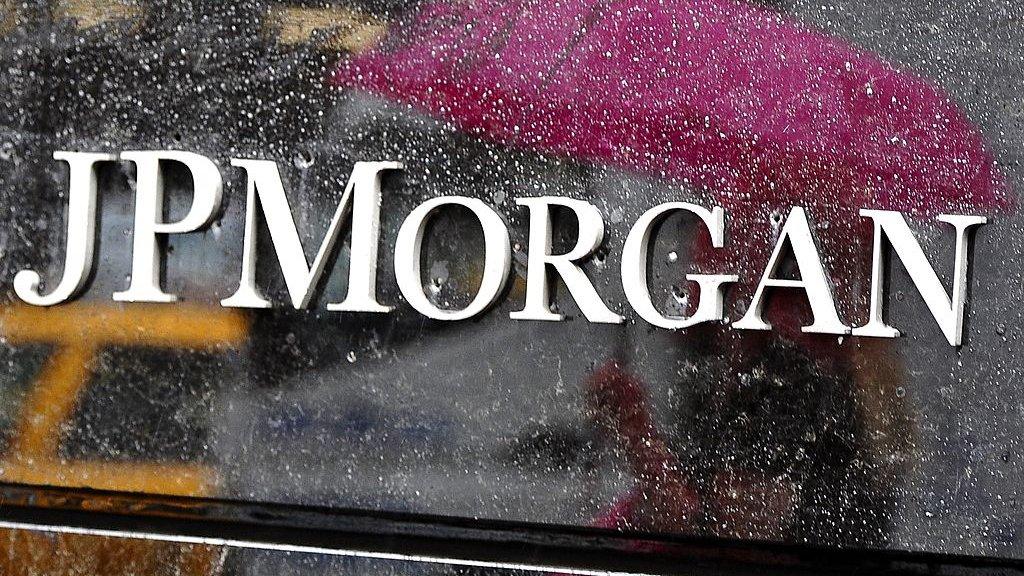
- Published3 June 2016
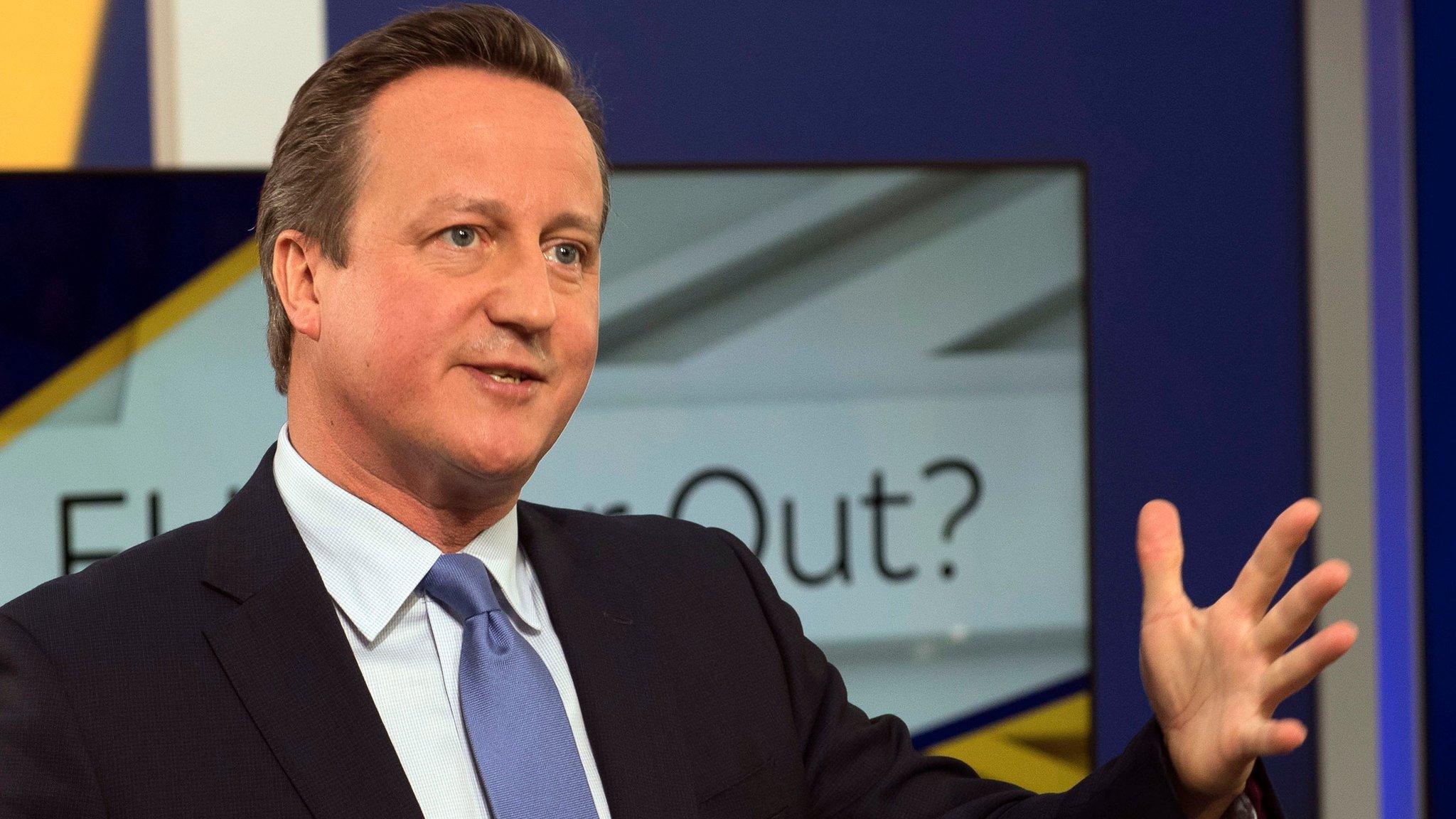
- Published3 June 2016

- Published3 June 2016
